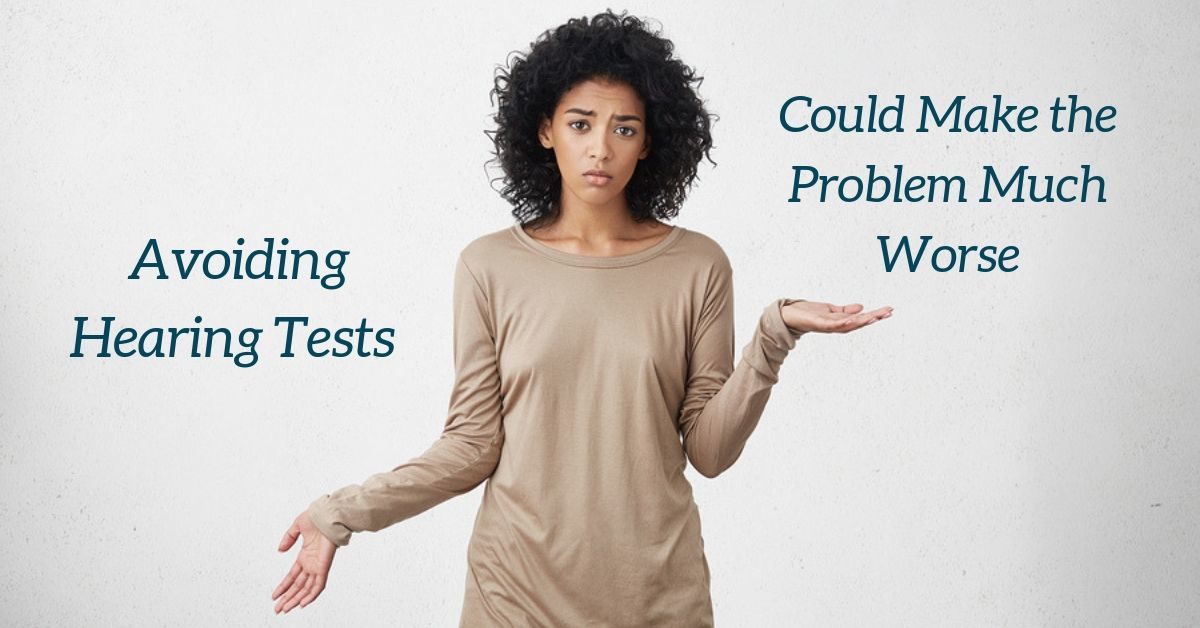One of the greatest dangers we face when it comes to the issue of hearing loss is negligence. Hearing decline is one of the most prominent public health issues in the US, competing with cancer and diabetes. It is no longer a condition pertinent only to the elderly. In fact, the rise of hearing impairment is now common to every demographic and trending upwards in the category of younger adults and teens.
There is a wealth of information that we have access to these days and it is upon us to be diligent about our hearing health. Some well-known medical research and studies have confirmed links between hearing loss and poorer work performance, lowered cognitive abilities, dementia, isolation and depression.
Hearing loss is a largely invisible condition and one that signals its onset very incrementally so it is hard to pinpoint or extremely quickly with irreversible results. What can we do to refrain from being part of the overwhelming statistics that indicate almost 30 million people in the US are in need of hearing aids but haven’t procured them? Or that we are easily one of over a billion people worldwide that would benefit from a hearing assessment but haven’t gotten one?
What is the nature of hearing loss and what is the one single thing we can do to get on the right track to address it? These are some of the questions the following article will explore.
The journey of sound
In order to understand the importance of a hearing assessment, it is crucial to understand some of the most important aspects involved in our perception of sound.
Our outer ear catches and funnels sound through the external auditory canal into our middle ear. From the middle ear small bones known as ossicles transmit sound waves to the cochlear in the inner ear. The cochlear is filled with fluid and minute hairs known as cilia crucial in the progression of sound waves. They are then further transported to the main auditory organ that is connected to the brain for translation into what we perceive as sound.
Loss of hearing
Our perception of sound requires many components and mechanisms to work in tandem. What this means is that along the way, if there are any deficiencies, the sound information we receive is corrupted. There many forms of hearing loss and many factors that contribute to it. It ranges from genetics, medical conditions, personal practices, noise pollution and age.
What we do know that once hearing loss begins it immediately affects the pathways we have set up through our life from the ear to the brain. As we continue to receive distorted sound information, building upon compromised neural networks or pathways, it compounds our hearing loss. As a result, our cognitive abilities start to deteriorate.
We rely on well-established networks from our ear tour brains to recognise for example, the blaring of a car horn as a signal of danger. Once our hearing is compromised the negative affects become compounded. Therefore, the most important from of action we can take is to get a comprehensive assessment of our hearing. Hearing loss is so easily ignored until it is too late and damage is irreversible. It does not have to be case for you.
Symptoms to watch out for
Friends and family are usually the first to notice when people close to them are suffering from hearing decline. The sufferer more often than not is inadvertently compensating for their hearing loss by defaulting to some commonly known techniques.
- Increasingly asking people to repeat that they are saying
- Turning up the volume on the TV or radio at a level uncomfortable for others
- Unable to keep up with regular conversations in a group situation
- Isolating themselves from social and family gatherings
- Decreased of shared activities
By the time you or your loved one is exhibiting one or more of the symptoms mentioned above, hearing decline has probably set in. The danger of hearing loss lies in our very own neglect. However, the good news is that we live in an age where technology and medical research are making strides every day in our favor.
We have a wealth of sources to choose from to assist us on our journey to the sustenance and protection of our natural hearing. Hearing aids, assistive listening devices, phone apps and a plethora of listening systems installed in private and public arenas give us more access and mobility than ever before.
Absolute Audio
At Absolute Audio, we would be more than happy to assist you with information and guidance to your hearing wellness. Book an appointment, bring a friend or family member, and know that with your hearing assessment, our hearing professionals and knowledge you have much to look forward to for your overall health and hearing.

